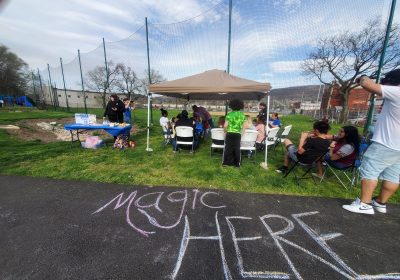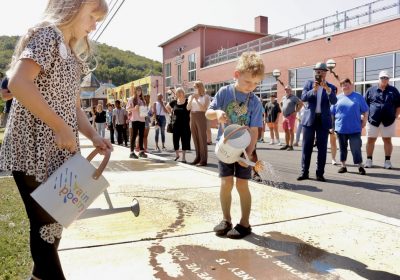Through our award-winning Teen Reading Loung program, the Pennsylvania Humanities Council (PHC) invests funds to help youth build 21st-century learning skills.
Preliminary data suggest that 84% of teens who participated in Teen Reading Lounge across Pennsylvania in 2015-2016 learned to recognize and respect differences and perspectives of others, 72% are better able to analyze and evaluate different points of view, and 64% have improved upon their ability to build on their own and others’ ideas.
Beyond improving learning outcomes for teens, PHC also aims with Teen Reading Lounge to build the capacity of public libraries in Pennsylvania to offer quality humanities-based teen programming into the future, well beyond the initial period of PHC funding, training, and technical support.
In Lackawanna County’s system of seven libraries in Northeastern Pennsylvania, Teen Reading Lounge has become a mainstay of teen programming and the system itself is funding it. Teen Reading Lounge first launched in the county in 2015 as part of a project that aimed to reach the Northeast region’s 12-18-year-olds. Albright Memorial Library, Carbondale Public Library, and Valley Community Library kicked off programs that spring and, over the span of eight weeks, saw such great interest from young people that they applied to PHC for funding to run a second round. Early hosts sites were enthusiastic about the flexible, teen-centered approach to the humanities. They saw Teen Reading Lounge as unique in inviting young people to express their opinions and learn about the world around them.
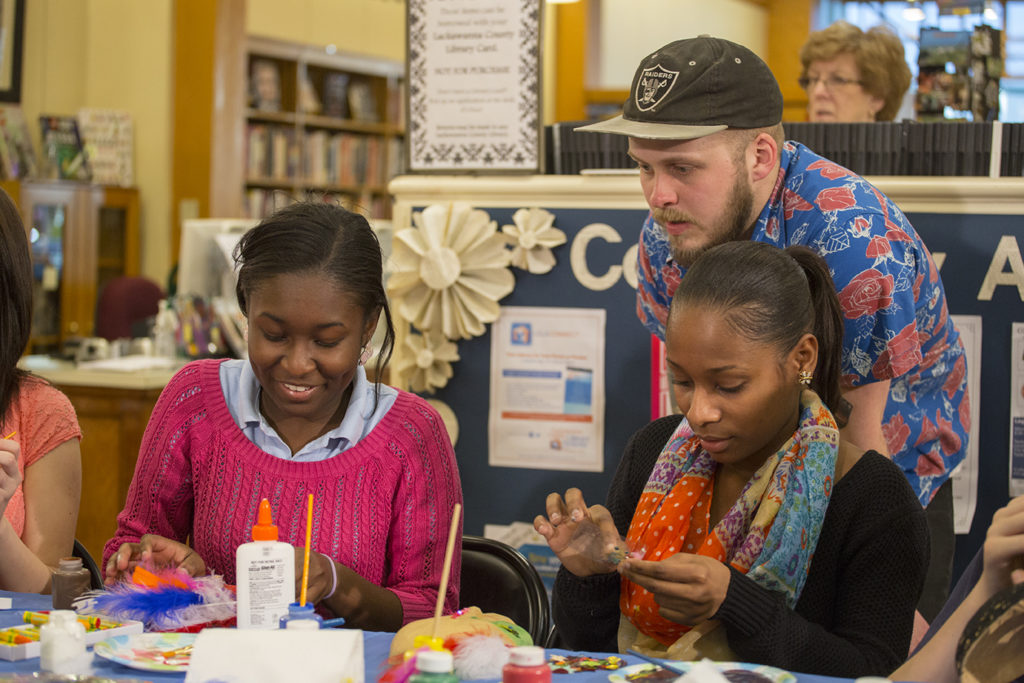
“Traditionally, a book discussion series is a hard sell for teens,” one site reported. “Incorporating the humanities aspect allows you to offer a variety of options related to the chosen book that will attract teens and keep their interests as well as appeal to the different learning styles.”
This enthusiasm was central to Lackawanna County’s ability to follow through on a plan to make the program available to more libraries in the system. The capacity to channel the passion of all of Teen Reading Lounge’s site coordinators, facilitators and participants was essential for creating interest for this program across the county.
Mary Garm, the library systems administrator for Lackawanna County, says that she worked with the system’s board of directors to budget funds to support one system-wide Teen Reading Lounge coordinator, as well as funds for each library to hire a program facilitator and purchase books and supplies. Sandy Longo, the assistant director of the Abington Community Library, was tapped to serve as the system’s official coordinator. Longo was the original contact for the original Northeast PA project and knew the impact of the program well, which enabled her to become a leader for Teen Reading Lounge among Lackawanna libraries.
“The teen librarians throughout the library system work tremendously together,” says Longo. “Most, if not all, experienced firsthand the benefits of including TRL in their core programming, so no convincing was needed on my part.”
Working together, Longo and Garm established a timeline of participation for all member libraries, so that marketing could be coordinated for the most impact. This served to create a “county-wide TRL buzz” that, as Longo says, gave them a defined period of time to find artists and speakers to serve as co-facilitators. Libraries worked closely with these individuals and young people to plan their programs.
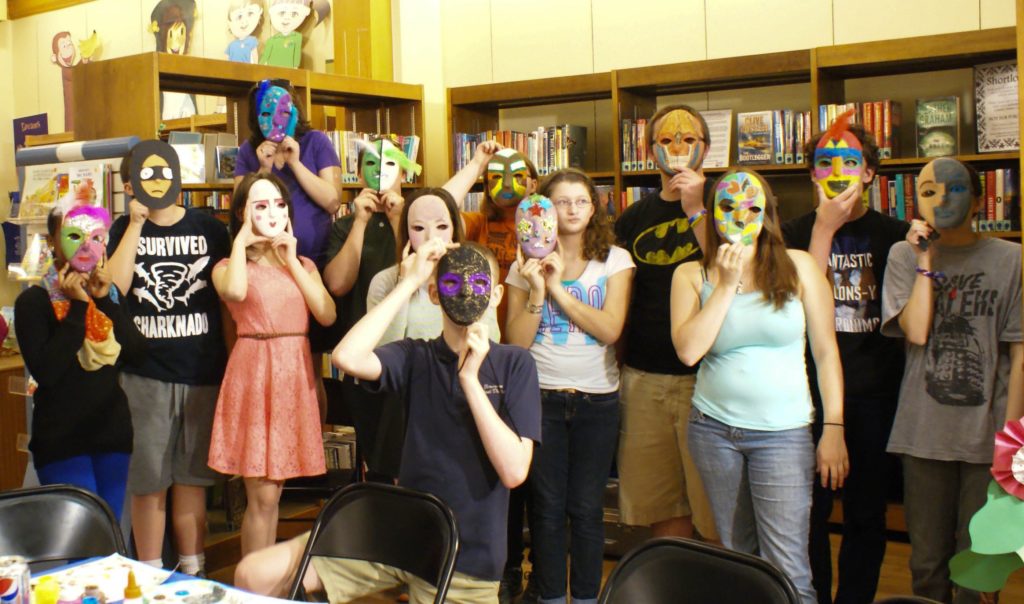
In late 2015, Lackawanna-funded Teen Reading Lounge programs launched at the original three libraries and at five additional sites in the system: Abington Community Library, Nancy K. Holmes Branch Library, Dalton Community Library, North Pocono Public Library, and Taylor Community Library.
Outcomes for the Lackawanna expansion program tracked very closely to other cohorts across the state. For example, 88% of participants said they’d participate in Teen Reading Lounge again. One young person commented, “I mostly enjoyed talking to others about my thoughts about the book. I also enjoyed making new friends.”
As librarians reflected on why this expansion worked, they reported that “Teens liked having something that was ‘just for them.’ They cited the program’s flexibility, focus on open communication, and teen-centered content as reasons why Teen Reading Lounge was a success. One librarian said that she hopes to make Teen Reading Lounge a part of her core programming for teens.
Longo and Garm insist that Teen Reading Lounge can be adopted by other library systems across the Commonwealth. “Libraries can do a lot with little money,” says Garm. “TRL can work, even without a dedicated budget, if librarians are able to assemble volunteer facilitators and borrow copies of popular books.”
Not only does Teen Reading Lounge have proven outcomes that benefit communities on their own, but the documentation of this impact also makes it a program that could be, as Garm says, of great interest to local grantmakers.
The Lackawanna libraries’ path to continuing Teen Reading Lounge beyond start-up funding from PHC can serve as inspiration to other libraries looking to provide quality teen programming into the future. “Our teen librarians were enthusiastic about continuing a program that encouraged teens to read, create, and interact with one another,” says Garm. “It is the enthusiasm of the participants and the doors they open for themselves that makes Teen Reading Lounge such a valuable program.”
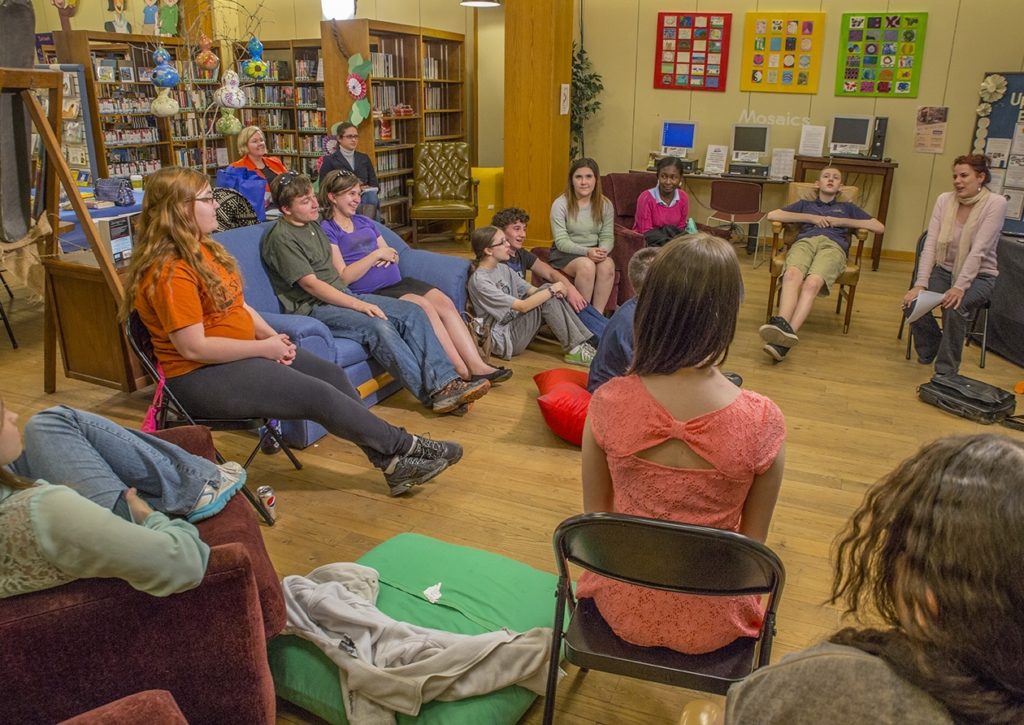
![[color – dark bg] PA SHARP FINAL FILES DB 72dpi [color - dark bg] PA SHARP FINAL FILES DB 72dpi](https://pahumanities.org/uploads/files/elementor/thumbs/color-dark-bg-PA-SHARP-FINAL-FILES-DB-72dpi-phgl7aimtfdpzt2rscvl43ksfv3asbbls19lsvuacw.jpg)

